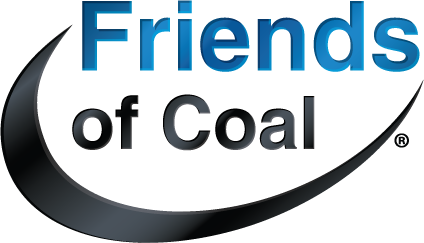- Details
Charleston, W.Va. – Chris Hamilton, President/CEO of the West Virginia Coal Association, offers the following statement concerning the U.S. Environmental Protection Agency’s proposal to rescind the 2009 Endangerment Finding and Greenhouse Gas Vehicle Standards:
- Details
The West Virginia Coal Association applauds the U.S. House of Representatives for reauthorizing the National Coal Council through H.R. 3015, the National Coal Council Reestablishment Act. This important legislation ensures continued collaboration between industry leaders and government to support the future of coal in America.
The reauthorization of the National Coal Council will maximize coal's critical role in the U.S. electricity mix, help stabilize the increasingly unreliable electricity grid, and drive innovation and responsible development in coal mining and utilization for years to come.
- Details
Charleston, W.Va. – Following Governor Morrisey’s announcement regarding his plan to build 50 gigawatts of electricity generation in West Virginia by 2050, Chris Hamilton offered the following statement:
“Governor Morrisey’s plan to grow West Virginia’s energy generation capacity to 50 gigawatts by 2050 is a dynamic approach to economic development which will supercharge our state’s coal industry and broader economy.
- Details
Charleston, W.Va. – House Bill 2014, legislation to incentivize microgrid and data center development in West Virginia, became effective this month, and with it, the implementation of rules and regulations to maintain and strengthen the state’s coal industry.
Chris Hamilton, President of the West Virginia Coal Association, said, “The bill will sustain demand for West Virginia coal, protect jobs, and preserve the economic stability of our mining communities, and through that, our state’s economy. This critically important legislation prioritizes coal for existing and new energy capacity and requires utilities to maintain their plants to operate at optimum levels.”
- Details
America's Coal Associations comprised of the nation's state Coal Associations and major coal advocacy groups issued the following statement in response to the final passage of the One Big Beautiful Bill Act (OBBB) by Congress and its expected signing by President Trump:
“Today marks a landmark victory for our nation's coal miners, their families, and every community that depends on coal for its livelihood said Judy Colgan, Executive director, Rocky Mountain Mining Institute.
"The passage of the One Big Beautiful Bill is a decisive blow to the regulatory overreach that has stifled our industry and jeopardized America's energy independence for far too long," said Krissy Lilljedahl, Administrative Director, Texas Mining and Reclamation Association.






